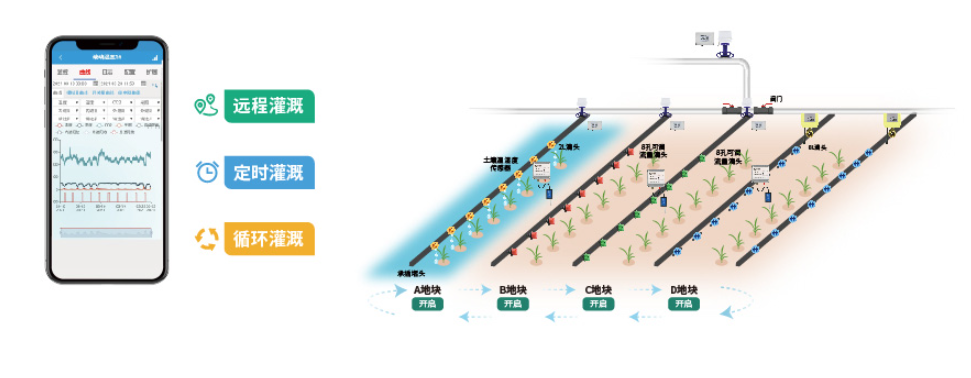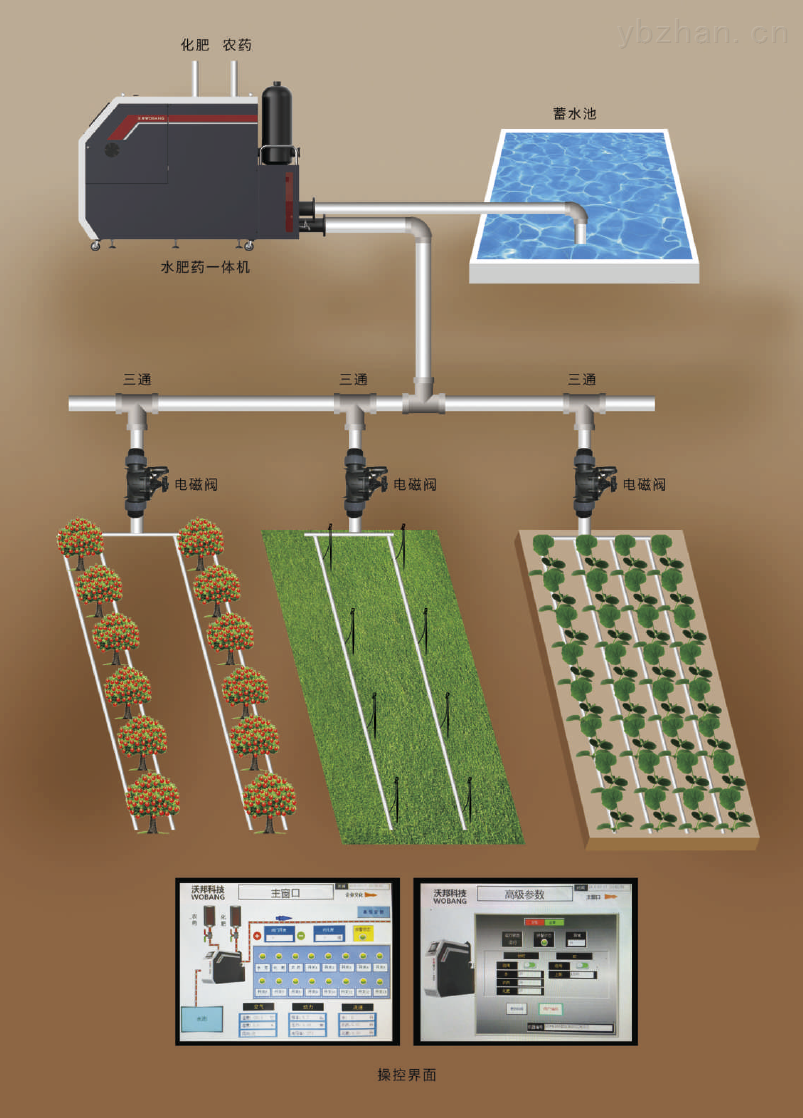

— Blogs —
—Products—
 Consumer hotline +8618073152920
Consumer hotline +8618073152920 WhatsApp:+8615367865107
Address:Room 102, District D, Houhu Industrial Park, Yuelu District, Changsha City, Hunan Province, China
Product knowledge
Time:2024-01-22 15:17:51 Popularity:1173
Soil moisture sensors irrigation is a method of irrigation that utilizes soil moisture sensors. This method works by measuring the moisture content in the soil to determine if irrigation is needed, as well as the amount and timing of irrigation.
There are several types of soil moisture sensors, including capacitance sensors, tensiometers, and resistance sensors. Capacitance sensors measure the dielectric constant of the soil, which is related to the water content. Tensiometers measure the tension of soil water, while resistance sensors measure the electrical resistance of the soil, which is also related to moisture content.
Soil moisture sensors monitor the moisture content of the soil and convert it into an electrical or digital signal that is transmitted to a control system. The control system compares the received signal with a preset threshold to determine whether irrigation is required. If irrigation is needed, the control system will automatically control the irrigation system to irrigate.
By using soil moisture sensors to irrigate, the irrigation time and amount can be controlled more accurately, avoiding the effects of over-irrigation or under-irrigation on the growth of the crop, and improving the yield and quality of the crop. At the same time, this method can also save water resources and reduce production costs, in line with the requirements of sustainable development.
How does the soil moisture sensor monitor the moisture content in the soil in real time?
Soil moisture sensors monitor water content in soil in real time by measuring parameters such as conductivity, dielectric constant or mass water content in the soil.
Specifically, soil moisture sensors utilize the physical and chemical properties of soil moisture, such as the conductivity and dielectric constant of water molecules that vary with soil moisture content. The sensor converts these physical and chemical properties into electrical or digital signals and transmits the signals to a control system via transmission line or wirelessly.
In the control system, the software compares the received signals with preset thresholds and decides whether irrigation is needed based on the comparison results. At the same time, the system can also make comprehensive judgments based on historical data and other factors such as meteorological conditions, in order to achieve more accurate irrigation decisions.

What does the control system use to determine if irrigation is needed?
Irrigation control systems can determine whether irrigation is needed based on a variety of factors. These factors include soil moisture, weather conditions, plant water requirements, and user-set parameters.
Specifically, soil moisture is an important basis for determining whether irrigation is needed. Through the soil moisture sensor, the control system can monitor the moisture content in the soil in real time. When the soil moisture is below a certain threshold, the control system will automatically turn on irrigation.

In addition, meteorological conditions are also an important factor influencing irrigation decisions. For example, the irrigation control system may delay or reduce irrigation when the weather forecast indicates rainfall in the coming days.
Plant water requirements are also an important consideration. Different plants have different water needs, so irrigation control systems need to be able to personalize irrigation decisions based on plant water needs.
Finally, user-set parameters can also influence irrigation decisions. For example, users can set the threshold of soil moisture, as well as the time and frequency of irrigation according to their needs.

In summary, the judgment basis of the irrigation control system is the result of a combination of factors to ensure that the timing and amount of irrigation can meet the needs of the crop, avoiding over-irrigation or under-irrigation, so as to realize the purpose of water-saving irrigation.
It should be noted that the accuracy and stability of soil moisture sensors have a large impact on the irrigation effect, so it is very important to choose reliable quality sensors. At the same time, the installation depth and position of the sensor need to be adjusted according to different crops and soil types to ensure the accuracy and reliability of the measurement results.
In addition to soil moisture sensors, there are other types of sensors that can be used for irrigation control, such as temperature, humidity, and light sensors. These sensors can be used in conjunction with soil moisture sensors to provide a more complete picture of the plant's growing environment and further improve the accuracy of irrigation decisions.
Agriculture-Sensors-Catalog-NiuBoL-2024.pdf
Related recommendations
Sensors & Weather Stations Catalog
Agriculture Sensors and Weather Stations Catalog-NiuBoL.pdf
Weather Stations Catalog-NiuBoL.pdf
Related products
 Combined air temperature and relative humidity sensor
Combined air temperature and relative humidity sensor Soil Moisture Temperature sensor for irrigation
Soil Moisture Temperature sensor for irrigation Soil pH sensor RS485 soil Testing instrument soil ph meter for agriculture
Soil pH sensor RS485 soil Testing instrument soil ph meter for agriculture Wind Speed sensor Output Modbus/RS485/Analog/0-5V/4-20mA
Wind Speed sensor Output Modbus/RS485/Analog/0-5V/4-20mA Tipping bucket rain gauge for weather monitoring auto rainfall sensor RS485/Outdoor/stainless steel
Tipping bucket rain gauge for weather monitoring auto rainfall sensor RS485/Outdoor/stainless steel Pyranometer Solar Radiation Sensor 4-20mA/RS485
Pyranometer Solar Radiation Sensor 4-20mA/RS485
Screenshot, WhatsApp to identify the QR code
WhatsApp number:+8615367865107
(Click on WhatsApp to copy and add friends)
